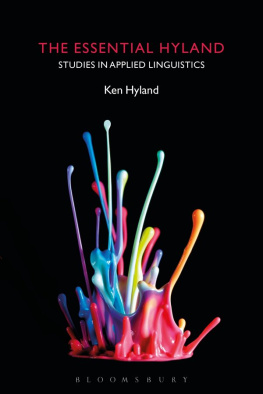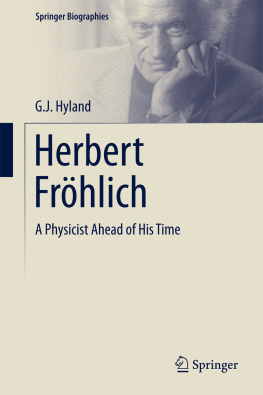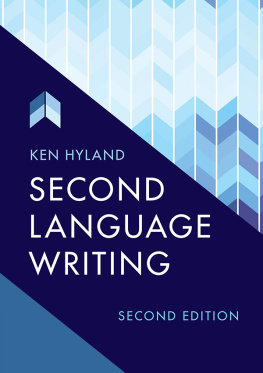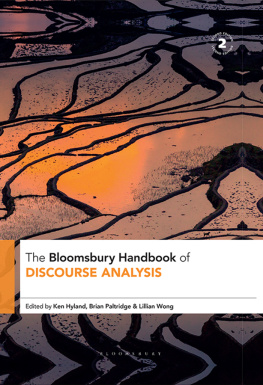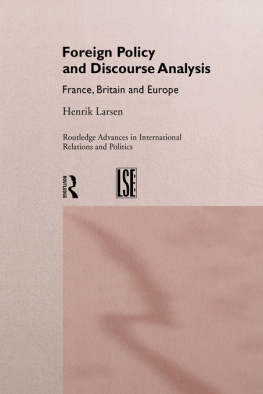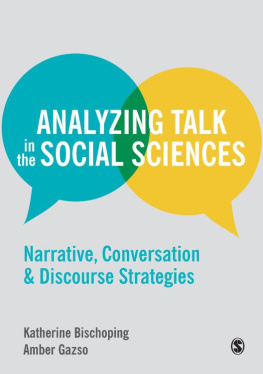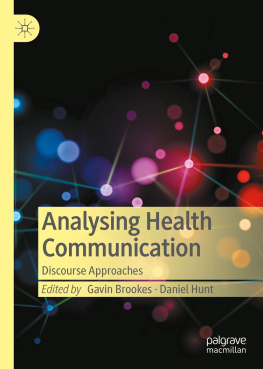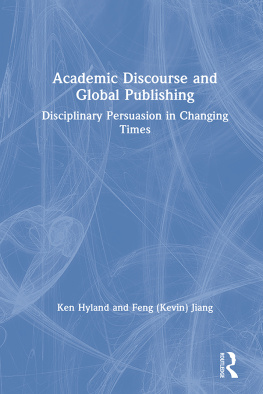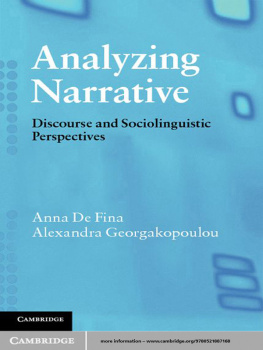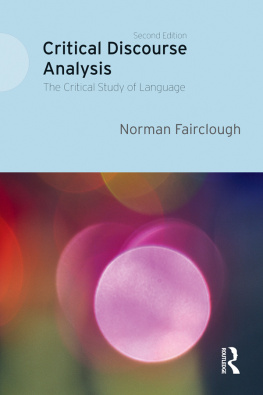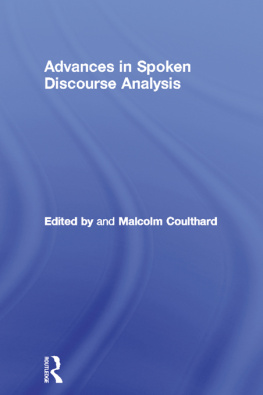The Essential Hyland
Also available from Bloomsbury
Academic Discourse , Ken Hyland
Metadiscourse , Ken Hyland
Discourse Studies Reader: Essential extracts, edited by Ken Hyland
Corpus Applications in Applied Linguistics , edited by Ken Hyland, Chau Meng Huat and Michael Handford
Bloomsbury Companion to Discourse , edited by Ken Hyland and Brian Paltridge
The Essential Hyland
Studies in Applied Linguistics
KEN HYLAND
Bloomsbury Academic
An imprint of Bloomsbury Publishing Plc

Contents
It seems odd to me, well extraordinary really, that I should be sitting here writing an introduction to a book of some of my collected papers. Something of an accidental academic, I started out as a language teacher pulled towards research by a curiosity about the ways texts work; how did the technical kinds of writing my students had to produce make sense to the people they were written for? It seemed an interesting question to ask and a good idea to try and understand more about these types of writing so I could teach them better. While I havent always been successful at the teaching part, it turns out that my papers have interested enough people to warrant this book.
Many others have studied writing to support their classroom practices but I was lucky that the beginning of my academic career coincided with an explosion of interest in scholarly discourse. The teaching of English in universities has changed enormously since I first picked up a board marker (or piece of chalk to be more accurate). Something close to a full-blown paradigm shift has occurred during this time with English for Academic Purposes (EAP) programmes taking us towards more targeted and more research-informed language instruction. The last thirty years has been a period characterized by increased specialization, the coming to dominance of genre and corpus analyses, the emergence of teaching paradigms related to social participation, identity and learner experience and the growth of non-Anglo practitioners in research and publishing. This book is one persons experience of these changes and attempts to make sense of them.
While organized thematically rather than chronologically, the pages in this book provide a rough map of a growing sub-discipline, or at least one writers small part of it. Since the mid-1980s academic discourse analysis, and the written variety in particular, has done a good job of establishing itself as a central field of research interest. With English, for the time being, sweeping away linguistic heterogeneity in the name of globalization and a free market of knowledge, the study of academic English has become something of a cottage industry. Because activities like educating students, demonstrating learning, disseminating ideas and constructing knowledge rely on language to accomplish, English has become of central to concern to everyone in higher education. Textbooks, essays, conference presentations, dissertations, lectures and research articles are indispensable to the academic enterprise while countless students and academics around the world, native and non-native English speakers alike, must now become familiar with the conventions of English academic discourses to understand their disciplines and steer their learning and careers.
The study of academic writing has, then, partly developed under the guise of EAP to better understand and address the needs of students and of academics who are increasingly required to write (and publish) in English. As a result, it has not only influenced what teachers do in the classroom but is itself approaching near-disciplinary status, supported by a burgeoning number of journals, books, conferences and doctoral dissertations and taught in units, departments and centres in almost every university where students need to study in English. But the field of academic writing has also expanded (and perhaps fragmented) because it offers such rich pickings for analysts interested in a diverse array of the twenty-first centurys most fascinating and contentious concepts. Here, in the apparently frozen surface of scholarly texts, we find evidence of interaction, interpersonal engagement, community, identity, power and cultural variation. At the same time, these texts reveal the workings of theoretical constructs such as legitimate peripheral participation, genre, agency and the social construction of knowledge.
Something of my own contribution to these issues lies in these chapters, but they must be seen in the wider context of the work of those in the sociology of scientific knowledge, social construction and applied linguistics which inspired and influenced them. I have been standing on the shoulders of giants among them are the five writers whose commentaries embellish this book: Chuck Bazerman, Brian Paltridge, Vijay Bhatia, Diane Belcher and Ann Johns to whom I am extremely grateful for their contributions. I first became aware that there was more to academic writing than following the prescriptive intuitions of my classroom textbooks when I came across the work of John Swales and Chuck Bazerman in the early 1990s, showing that scientific texts could be studied, much like works of fiction or oratory, for their stylistic choices and rhetorical effectiveness, and that what constitutes an appropriate text largely depends on the social and intellectual activity of the discipline which the text is part of.
These ideas were not new even back then as those working in the sociology of knowledge had long been sceptical of sciences view of itself as a dispassionate and neutral observer of reality. But these writers, among others, brought an empirical dimension to the picture. They showed us that scientific persuasion was a result of rhetorical choices which could be unpacked and understood through careful analysis of textual practices.
Readers will quickly become aware that most of the chapters in this book principally focus on texts and less often on how people use them or what they mean for those people. My starting point is usually corpora so it may seem that I am privileging text above practice and treating writing as primarily a linguistic, even an autonomous, object rather than something which is socially embedded in particular lives, disciplines and contexts. This is not, of course, my intention and where possible I have enlisted the views of disciplinary informants to help me out in understanding what might be gleaned from texts. I believe, however, that texts themselves have a lot to tell us. Academic texts are cultural artefacts which offer evidence of how people interact with others: the ways they present themselves and their ideas to engage with members of their communities and collaboratively construct understandings of what the word is like.
Finally, I should note here that while discipline plays a large part of the analyses in this book, not everyone agrees with the significance I have given it. The emerging importance of local ideologies, of institutional inducements towards interdisciplinary study, of the complexities of research questions, of easier communications and digital technologies have all perhaps undermined disciplinary boundaries in the twenty-first century. However, like Trowler et al. (2012: 246), I believe that disciplines have real epistemological characteristics, that knowledge structures do condition practices in quite real ways. Applied linguistics is not electrical engineering and that fact has real consequences for those working in those fields. The training and acculturation involved in becoming a professional scholar largely involves acquiring knowledge in a specialized field, so that the disciplines are not just sources of knowledge but the foundations of a professional identity and the bases for shared communicative practices. Disciplines may be diffuse structures but they are at the interface of academic decision-making and institutional constraints. Academic texts, then, are where individual beliefs and community expectations meet to reveal the everyday workings of disciplines.
Next page
